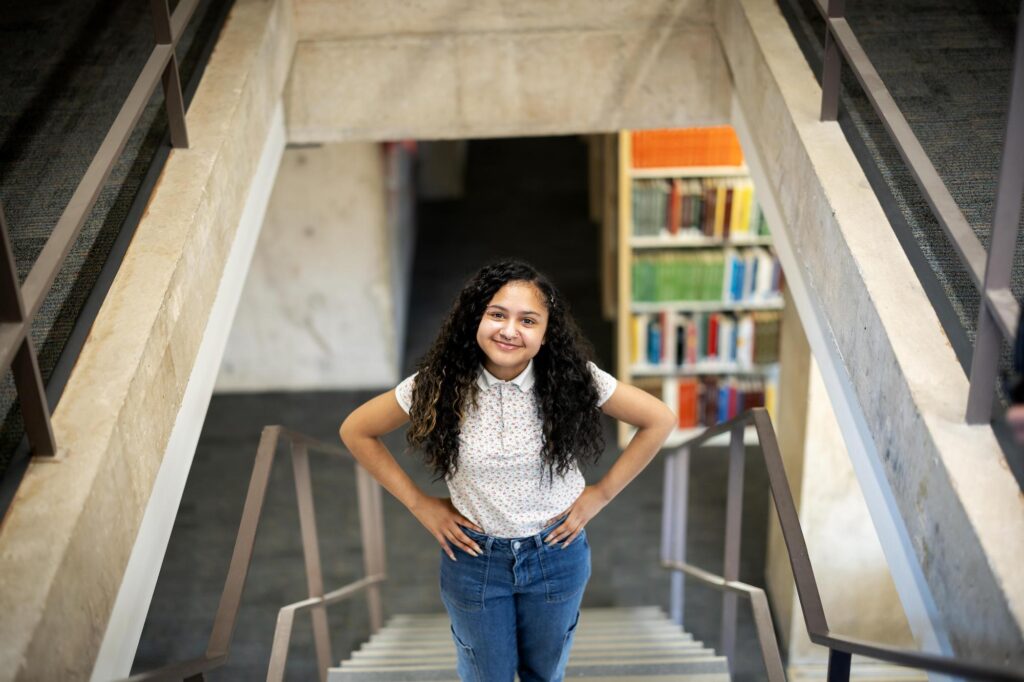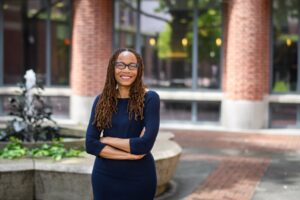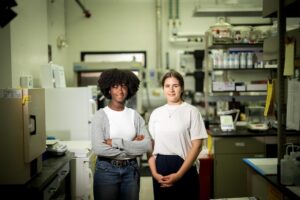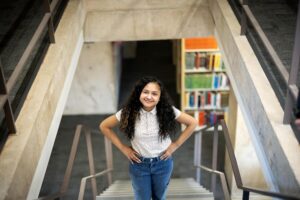Surrounded by many cultures and languages growing up in a multi-ethnic family in New York City, rising third-year Sierra Williams decided to major in cultural and linguistic anthropology, aiming for a career in the museum field.
That keen interest led her to the Penn Museum, where she is now an intern with the Penn Cultural Heritage Center, working on a research study about collecting practices and policies.
“This opportunity is a great learning experience, to get hands-on professional experience in a museum, especially because that’s something I really want to pursue,” Williams says. “But I think it also will help my studies at Penn, understanding the language that is used in museum work and in anthropology and learning about processes and communications.”
Williams is also studying linguistics, cognitive science, and East Asian languages and civilizations with a concentration in Japanese East Asian studies in the College of Arts & Sciences.
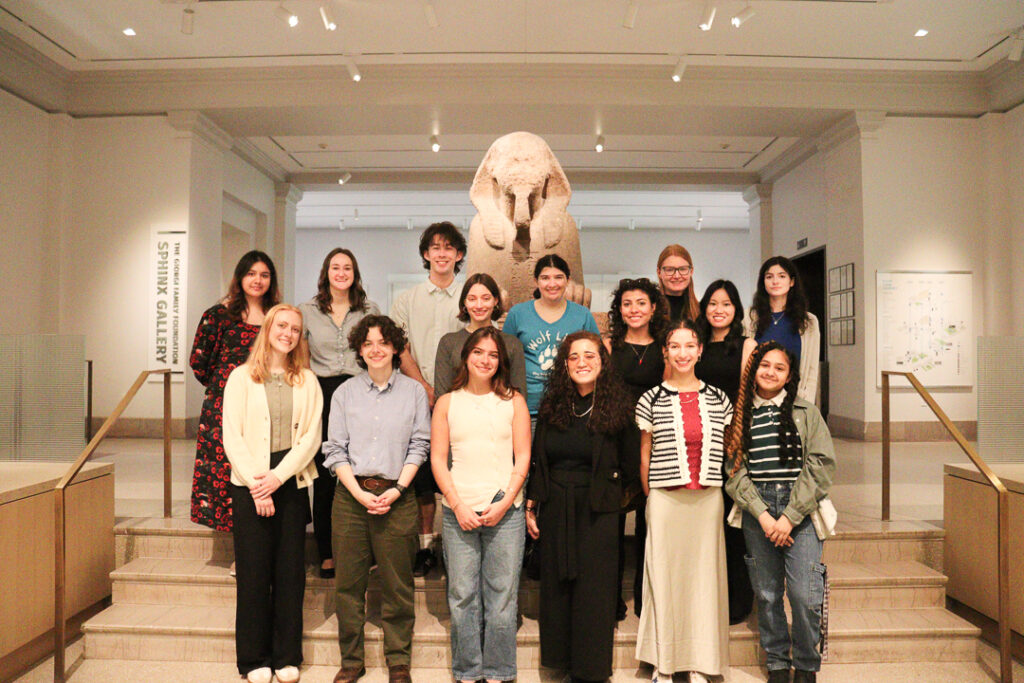
Kayla Kane, research coordinator at the Cultural Heritage Center, is her internship supervisor. “This is an interdisciplinary research project that requires a type of student researcher who understands how cultural institutions operate but who also can handle tabular data in a detailed and granular way,” Kane says. “Sierra’s background in both anthropology and social sciences makes her the perfect person to be helping us with our data collection activities.”
The project studies the policies and practices guiding collecting activities—from acquiring new objects to returning them to countries of origin—at museums in the United States, Kane says, “because many museum professionals want to understand how peer institutions are navigating their legal, ethical, and professional obligations as stewards of cultural heritage. We are obtaining qualitative data through a variety of methods to share with the museum field and its supporters. Sierra’s interdisciplinary perspective and her attention to detail in navigating a variety of data points have been really valuable.”
Summer internship opportunity
The 10-week internship is through the Summer Humanities Internship Program (SHIP), which provides a $5,500 award supported by the College and administered through the Center for Undergraduate Research and Fellowships.
Williams and 14 other interns at the Museum this summer have been visiting other museums in Philadelphia. “That’s been really cool to talk with people who actually work in museums and learn the ins-and-outs behind the scenes,” says Williams.
The Penn Cultural Heritage Center received a federal grant from the Institute of Museum and Library Services to launch the Museum Missions and Acquisitions (M2A) Project, a three-year national study on collecting practices and policies across American museums.
During the first year of the M2A Project, Penn researchers gathered about 40 data points each from the websites of about 500 U.S. museums related to policies on the acquisition and deaccession of objects. Williams has been reviewing the research undertaken to date, making sure the data is recorded in a consistent way that can be analyzed. “My main job is to clean up that data and make sure it’s all formatted correctly,” she says. “And if there’s any more research that needs to be done, I’ll find what’s been missing.”
The data will inform the questions that are asked in a field-wide survey in the project’s next stage, Kane says. “I expected this to take her the whole summer, but she’s accomplished it in about a month.”
Now Williams is starting a second assignment with the Center as the first person to work on developing a new data set of objects repatriated from American museums to other countries, using news articles. “It’s a novel data set for anyone, and I think it’s a particularly exciting one to work on as an undergraduate in the field,” Kane says.
The M2A Project’s research Williams is conducting this summer is “a good training opportunity for a number of different museum careers,” Kane says. “Understanding how to legally and ethically acquire and manage cultural property in museums will be necessary for all museum leaders and collections professionals in the future.”

